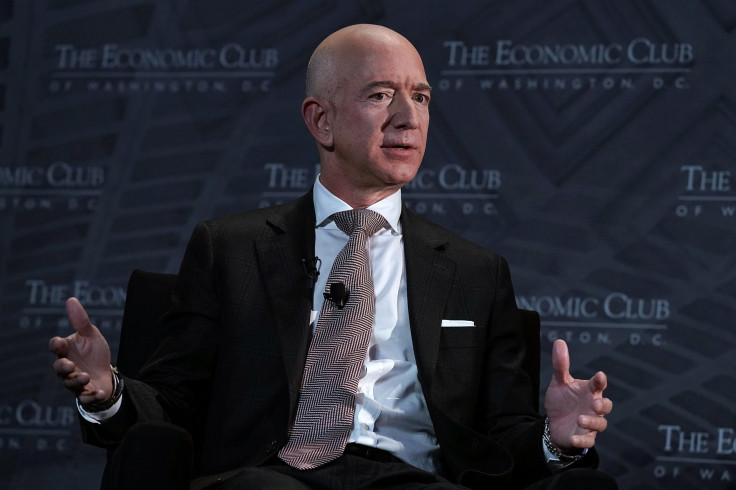Jeff Bezos: Amazon HQ2 Announcement Will Come By End Of 2018

Almost two dozen cities across North America are waiting to find out whether or not they will be home to Amazon’s second corporate headquarters. The wait will not last much longer, according to CEO Jeff Bezos. The richest man in modern history said the world would know where Amazon HQ2 would be by the end of 2018, according to CNBC.
The declaration came in an interview with the Economic Club of Washington, D.C. on Thursday night. Bezos would not spill the beans on where Amazon’s next headquarters would be, but promised everyone would know by year’s end. Earlier this year, Amazon publicly narrowed the list down to 20 cities, mostly in the United States.
Miami, Columbus, Toronto, Northern Virginia and Montgomery County, Maryland, are just a handful of the finalists for Amazon HQ2. There was some speculation that Bezos would make the announcement at the event in the nation’s capital, given that the area is one of the finalists. However, Bezos stayed quiet and gave his deadline instead.
Whichever metro area wins will get a new Amazon campus that is a “full equal” to the company’s first headquarters in Seattle, Washington, according to the e-commerce giant. That means 50,000 high-paying tech jobs, which means the winning city will likely see an influx of new, younger citizens with money to pump into the local economy.
However, critics charge that the city that wins will not really win in the end. Cities will try to woo Bezos’s tech behemoth with tax breaks, meaning the winner could lose out on valuable tax revenue. The influx of new residents could also have long-term economic impacts on the eventual second home for Amazon.
Opponents of the new Amazon HQ also argue that gentrification will be a serious concern. The area around Amazon’s first campus in Seattle has been gentrified over the years, and some of the finalist cities could see rent increases by as much as 1 or 2 percent per year.
Still, the prospect of tens of thousands of new jobs may incentivize cities to compete for the position regardless of any negative outcomes down the road.
© Copyright IBTimes 2024. All rights reserved.











